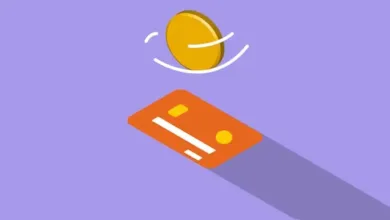Debt Management Plan Explained: Key Benefits, Costs, and How It Works for Financial Freedom

Table of Contents
Debt Management Plan: Managing debt is a challenge that many individuals face at some point in their lives. With rising costs and unexpected financial hardships, it’s easy for debts to spiral out of control. A Debt Management Plan (DMP) is a structured program designed to help people regain control of their finances and work towards becoming debt-free. In this comprehensive guide, we explore the benefits, costs, and mechanics of a Debt Management Plan, ensuring that you have all the information needed to make an informed decision.
What is a Debt Management Plan?
A Debt Management Plan is a voluntary agreement between you and your creditors, managed by a third-party organization, typically a credit counseling agency. The primary goal of a DMP is to help you pay off unsecured debts, such as credit cards, personal loans, and medical bills, in a manageable and systematic way. Under a DMP, your credit counselor negotiates with your creditors to reduce interest rates, waive fees, and establish a single monthly payment that fits your budget.
How Does a Debt Management Plan Work?
1. Assessment of Financial Situation
The process begins with a thorough assessment of your financial situation. A credit counselor will review your income, expenses, and outstanding debts to determine if a DMP is the right solution for you. This evaluation is essential to ensure that the plan is affordable and realistic.
2. Negotiation with Creditors
Once you enroll in a DMP, your credit counselor will reach out to your creditors to negotiate better terms. This often includes lower interest rates, reduced fees, and sometimes, a freeze on late charges. The goal is to make your debt repayment more manageable, allowing you to focus on clearing your balances without accumulating more debt.
3. Single Monthly Payment
One of the most significant advantages of a DMP is the consolidation of your payments into a single monthly amount. Instead of juggling multiple payments with varying due dates, you’ll make one payment to the credit counseling agency, which will then distribute the funds to your creditors. This simplifies the repayment process and reduces the risk of missed or late payments.
4. Debt Repayment Timeline
A typical DMP lasts between three to five years. During this period, it’s crucial to stick to the plan and avoid taking on new debt. As you consistently make your payments, your balances will gradually decrease, bringing you closer to financial freedom.
Benefits of a Debt Management Plan
Enrolling in a Debt Management Plan offers several benefits that can help you regain control of your financial situation:
1. Reduced Interest Rates
One of the most immediate advantages of a DMP is the reduction in interest rates. High-interest rates can make it challenging to pay down debt, as a significant portion of your payment goes towards interest rather than the principal. With a DMP, your credit counselor can negotiate lower rates, allowing more of your payment to go towards reducing the principal balance.
2. Waived or Reduced Fees
Creditors may agree to waive or reduce fees, such as late charges or over-limit fees, as part of the DMP negotiation. This can result in significant savings over the course of the plan.
3. Simplified Payments
Managing multiple debts with different due dates can be overwhelming. A DMP consolidates your debts into one manageable payment, making it easier to stay on track and avoid missed payments.
4. Avoiding Bankruptcy
For many people, a DMP serves as an alternative to bankruptcy. While bankruptcy can provide a fresh start, it also has long-lasting effects on your credit and financial future. A DMP allows you to pay off your debts in full, preserving your credit score and financial integrity.
5. Improved Financial Discipline
Participating in a DMP requires commitment and discipline. By sticking to a budget and making regular payments, you’ll develop better financial habits that can last a lifetime.
Costs Associated with a Debt Management Plan
While a DMP offers numerous benefits, it’s essential to understand the associated costs. Here’s what you can expect:
1. Initial Setup Fee
Most credit counseling agencies charge an initial setup fee when you enroll in a DMP. This fee typically ranges from $30 to $50, depending on the agency and your location.
2. Monthly Maintenance Fee
In addition to the setup fee, you’ll likely be charged a monthly maintenance fee for managing the plan. This fee usually ranges from $20 to $75, depending on the agency and the complexity of your plan. However, many agencies offer reduced fees for individuals facing financial hardship.
3. Potential Impact on Credit Score
While a DMP is less damaging to your credit score than bankruptcy, it can still have an impact. Enrolling in a DMP may be noted on your credit report, and some creditors may close your accounts, which can affect your credit utilization ratio. However, as you pay down your debt, your credit score will gradually improve.
Is a Debt Management Plan Right for You?
A Debt Management Plan is not a one-size-fits-all solution. It’s essential to carefully consider your financial situation and long-term goals before enrolling. A DMP may be a good fit if:
- You’re struggling to make minimum payments on your debts.
- You have a steady income but need help managing your debt.
- You want to avoid bankruptcy and are willing to commit to a structured repayment plan.
However, if your debts are primarily secured (such as a mortgage or car loan), or if you’re unable to commit to the monthly payments, other debt relief options may be more suitable.
Alternatives to a Debt Management Plan
If a DMP doesn’t seem like the right solution for you, there are other options to consider:
1. Debt Consolidation Loan
A debt consolidation loan involves taking out a new loan to pay off your existing debts. This can simplify your payments and potentially lower your interest rate, but it requires good credit to qualify for favorable terms.
2. Debt Settlement
Debt settlement involves negotiating with your creditors to pay a lump sum that is less than the total amount owed. While this can reduce your debt, it can also have a significant negative impact on your credit score.
3. Bankruptcy
If your debts are overwhelming and you have no realistic way to repay them, bankruptcy may be an option. However, it should be considered a last resort due to its long-term effects on your credit and financial future.
Final Thoughts
A Debt Management Plan can be a powerful tool for regaining control of your finances and achieving debt freedom. By understanding the benefits, costs, and mechanics of a DMP, you can make an informed decision that aligns with your financial goals. Remember, the key to success is commitment, discipline, and a willingness to seek help when needed.
External Resources:
- Understanding Debt Management Plans:
- For a detailed explanation of Debt Management Plans, visit Consumer.gov.
- Credit Counseling Services:
- Learn more about choosing a credit counseling agency at FTC Consumer Information.
- Alternatives to Debt Management Plans:
- Explore debt relief options, including debt settlement and consolidation, at NerdWallet.






